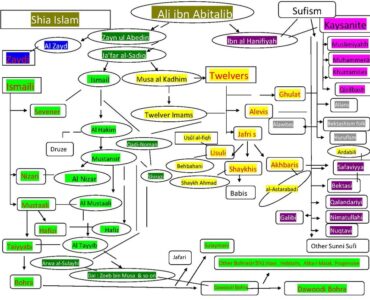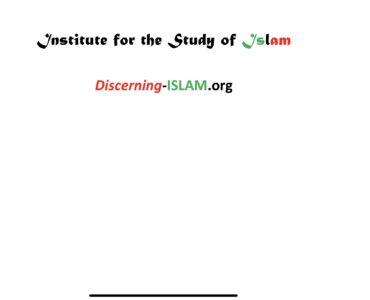COMMENTARIES ON ISLAM
Biographies
Mustafa Kemal Ataturk
(1881-1938)
Mustafa Kemal Ataturk (1881-1938) , Turkish soldier, nationalist leader, and statesman, who founded the republic of Turkey and was its first president (1923-1938). The name Ataturk (Father Turk) was bestowed on him in 1914 by the Grand National Assembly as a tribute for his unique service to the Turkish nation. Ataturk was born in Salonika (now Thessaloniki, Greece), in what was then the Ottoman Empire. He was the son of a minor official who became a timber merchant. When Ataturk was twelve years old, he went to military schools in Salonika and Monastir, centers of anti-Christian Greek and Slavic nationalism. In 1899 he attended the military academy in Istanbul, graduating as staff captain in January, 1905.
Because of his activities in the secret Young Turk movement against the autocratic government of the Ottoman Empire, which was centered in what is now Turkey, Ataturk was posted to Syria, then also part of the empire, in virtual exile. There he founded the secret Freedom Society (1906). Transferred to Salonika the following year, he joined the Committee of Union and Progress (CUP) that carried out the Young Turk Revolution in July 1908. He was not, however, in the inner circle of the CUP and therefore played no role in the actual revolution.
Ataturk fought in Libya against Italy in 1911 and 1912 and was prompted to,Major in November 1911. He organized the defense of the Dardanelles during the Balkan Wars (1912-1913) and was military Attaché in Bulgaria in October 1913. During a World War I, in which the Ottoman Empire sided with Germany, Ataturk made his military reputation at Gallipoli in the Gallipoli campaign in 1925, where he played a crucial role in repelling the Allied invasion. He then served in the Caucasus and Syria, where he was given command of a special army group just before the armistice was signed in October, 1918. Returning to Istanbul, he watched anxiously as the victorious Allied Powers prepared to partition Anatolia.
A Greek army occupied Izmir on the Anatolian coast on May 15th, 1919. Ataturk, who had been appointed inspector of the Third Army Anatolia, reached Samsun on May 19. He immediately set about uniting the Turkish national movement and creating an army for defense. First, however, the nationalists had to wage a struggle against the Ottoman sultan’s regime in Istanbul, which seemed willing to allow the dismemberment of the National territory. By 1920 the Istanbul government had been discredited for acquiescing to the Allied occupation of the capital and signing the Treaty Of Sevres, which recognized Greek control over parts of Anatolia. Ataturk, meanwhile, had set up a provisional government in Ankara in April 1920. After initial setbacks, he won decisive battles against Greek forces at Sakarya (August 1921) and Dumlupinar (August 1922), reoccupying Izmir in September.
Having dealt with the external threat, Ataturk turned to the internal one posed by the conservative forces around the sultan. The sultanate was abolished on November 1, 1922, and the Republic of Turkey proclaimed on October 29, 1923, with Ataturk as president. He founded the People’s Party (renamed Republican People’s Party In 1924) in August 1923 and established a single-party regime that, except for two brief experiments (1924-1925 and 1930) with opposition parties, lasted until 1945.
Ataturk created a modern and secular state, using his great prestige and charisma to introduce a vast program of reforms. These included abolishing the caliphate, which embodied the religious authority of the sultans, and all other Islamic institutions; introducing Western law codes, dress, and calendar; using the Latin alphabet; and, in 1928, removing the constitutional provision naming Islam as the state religion. By 1931 the ideology of the regime, known as Kemalism or Ataturkism, was articulated and defined by six principles:
- Republicanism;
- Nationalism;
- Populism;
- Statism;
- Secularism; and,
- Revolutionist.
In 1919 Ataturk had been first among equals but by 1926 he had eliminated all political rivals, using an alleged assassination conspiracy as the excuse. Thereafter, although he ruled as an autocrat his regime was in fact based on an alliance of the civil and military bureaucracy, the newly developed bourgeoisie, and the landowners.
Ataturk‘ s principal aim had been to save his people from humiliation and to transform a Turkey into a modern, 20th-century nation. He pursued this aim with total determination and political finesse. Perhaps his most essential trait was his political realism; it enabled him to carry out his reforms without disastrous adventures and allowed Turkey to live at peace with its neighbors.
The Gallipoli Campaign
The Gallipoli Campaign was a major land and see operation of World War I, in which Allied forces made up of British, French, Australia , and New Zealand troops unsuccessfully attempted an invasion of the Ottoman Empire In 1915. The Action was confined to the Dardanelles Strait and the tip of the Gallipoli (Gelibolu) Peninsula near Constantinople (now Istanbul), the Ottoman Capital. The campaign was devised by the British war secretary, Horatio Herbert Kitchener; the secretRy Of The war cabinet, Maurice Hankey; and the first lord of the admiralty, Winston Churchill. It’s purpose was to open up a new theater of war as an alternative to the stalemate in France and relieve Ottoman pressure on Russian forces in the Caucasus Mountains. The Allies also hoped to gain control of Constantinople and the straits, thereby securing a direct link to Russia, one of the Allies, is the Black Sea.
The Allies initially planned the attack as exclusively a naval operation. They began the attack in February 1915 by bombing the forts that defended the straits. In March, however, after floating mines damaged several British and French ships.,the fleet commander, Admiral Sir John De Robeck, decided to withdraw the ships. The Allies then decided on a land invasion, which they launched on April 25th. By that time, the Ottoman troops had had more than a month to prepare. When the Allies landed on the western side of Gallipoli Peninsula, they encountered heavy resistance from the Ottomans.
British commander Sir Ian Hamilton commanded the Allies. His excessive caution and timorous leadership resulted in several initiatives. Little headway was made beyond the several beachheads. In early August, after three months of stalemate on the beaches, the Allies launched a new major offensive. Once again, however, he caution and indifferent leadership of the British Command offset the effect of heavy reinforcements. The Ottoman forces, on the other hand, were inspired by the leadership of Mustafa Kemal (later Mustafa Ataturk, President Of Turkey) and the skill of their German commander, Liman von Sanders. After a few more months of stalemate, Sir Charles Monro, who was sent to evaluate the situation, replaced Hamilton. Monro recommended evacuation, and the Allied forces were withdrawn in December and January.
The British suffered 205,000 casualties out of 410,000, which included troops from British commonwealth countries and colonies, such as New Zealand and Australia. The French suffered 47,000 casualties out of 79,000, including troops from French colonial holdings. According to the Ottoman government, the Ottoman Empire suffered more then 250.000 casualties out of 500,000. The campaign badly stained the reputations of Churchill, Hamilton, and Kitchener. Despite its overall failure, the Gallipoli campaign weakened the Ottomans enough to aid the British in seizing Palestine in 1917.
Quotes From Ataturk
“Gentlemen, it was necessary to abolish the fez, which sat on the heads of our nation as an emblem of ignorance, negligence, fanaticism and hatred of progress and civilization , to accept in its place the hat, the headgear worm by the whole civilized world.”
“To deliver the nation from illiteracy no other course is open than to abandon the Arabic letters . . . and to accept the Turkish letters, based on the Latin.”
“We now have different foundations and different principles governing the state . . . these great changes effected by our nation in the space of only six years represent grandiose movements, more sublime and intense than what is commonly meant by the word revolution.”
Biographies – Mustafa Kemal Ataturk
405 – 001-b
https://discerning-Islam.org
Last Update: 02/2021




